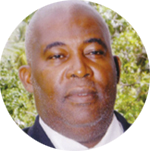
WELCOME students to another lesson in the Open School for the second term for the academic or school year 2023 to 2024. The school is open to parents, guardians, teachers, students and members of the public. It is my hope that students will acquire knowledge and skills on how to design lessons to help students reach mastery.
At the end of the lesson, students should be able to (1) Explain the term Mastery and (2) Name two ways in which teachers can ensure that students reach the mastery level of the subject being taught.
There are about 73 Primary Schoos and 26 Secondary Schools in St. Lucia. Indeed, schools exist and teachers are appointed to help students achieve. In other words, to help students gain mastery of the subject matter being taught.
Now what do I mean by mastery? Mastery Learning means that the teacher tries to ensure that all students can demonstrate learning of the concept or subject matter being taught before moving to the next concept or subject.
Teachers are charged with the responsibility of getting students to comprehend or understand and to achieve.
Indeed, there are some very important things that teachers need to know in order help student gain mastery of a lesson or subject. The following are some areas which will ensure that students are learning, are achieving.
Teachers should have high expectations of their students to enable them to succeed. Very simply teachers must be convinced that every child can learn and would be able to demonstrate that learning and that they can succeed.
Now teachers should be guided by a very important instrument; the lesson plan. The lesson plan should clearly indicate the subject matter to be taught; the lesson goal, aim and objectives; the steps that the teacher would follow in order to get the students involved and participate in the lesson; to determine what specific questions that should be asked that would guide the learning; and should be able to determine beforehand, how the lesson would be evaluated to ensure that learning has, in fact, taken place.
Teachers should be good classroom managers. That is, teachers should be able to implement strategies which would offer students the best chance of succeeding. The following are some ideas: the teacher should lead by example. He or she should remember that students are very good imitators and would quickly copy the teacher’s leadership style.
The teacher should allow students to participate in the rules for the class. Teachers have the tendency to write the rules and pin the list in the classroom. Teachers should actually allow students to participate in making the rules.
Another strategy would be for the teacher to write the rules down clearly and place them in the classroom where students could clearly see those rules.
Teachers must hold the students accountable for breaking the rules. I forget to mention that when the rules are being drawn up, with the participation of students, consequences must also be drawn up along with those rules.
Indeed, those classroom rules should help control student behaviour and set the tone for effective learning and to allow students to achieve.
Another very important factor to be considered in managing the classroom, is that the students themselves must be ready to learn.
It is important to understand that many students in our schools in St. Lucia are not ready to learn, especially those students who come from affluent homes or families. Those students have difficulty in seeing the need to learn and succeed to take their place in our society.
Another strategy is for the teacher to use instructional time wisely. By instructional time I mean the time used for teaching and learning.
During instructional time, the teacher has the opportunity to observe the students who would be involved in a task. In education we say, time on task.
Now, time on task gives the teacher the opportunity to walk around the classroom helping those students who are in need. It will be easy to determine the students who are engaged. Those students would be on task, working.
We come now to the issue of academic time that is the amount of time that the teacher can prove that the student has comprehended or learned the lesson content or have mastered the skill.
Indeed, determining student academic learning points to two questions: (a) Did the student learn what the teacher want them to learn? And, can the teacher show that the student learned what the teacher wanted them to learn?
As you may have realised, the teacher has a serious responsibility in teaching and learning. That is intended to tell you, my reader, that the teacher must not be taken for granted. This suggests that parents must give the teacher their full cooperation and support.
That also suggests that students also, must always be ready to cooperate with their teachers and be determined to learn and achieve.
Let me take the opportunity to remind you, my dear reader, that there is no substitute for effort and hard work in school. Both the teacher and the student must be ready to exert much effort in the task of teaching and learning.
Indeed, the teacher must have an undying belief, can and has the ability to learn, even though, not at the same rate. And he or she must persevere.
Now, two questions for you:
(1) Explain in your own words, the term Mastery and (2) Name two ways in which teachers can ensure that students reach the mastery level in learning.





